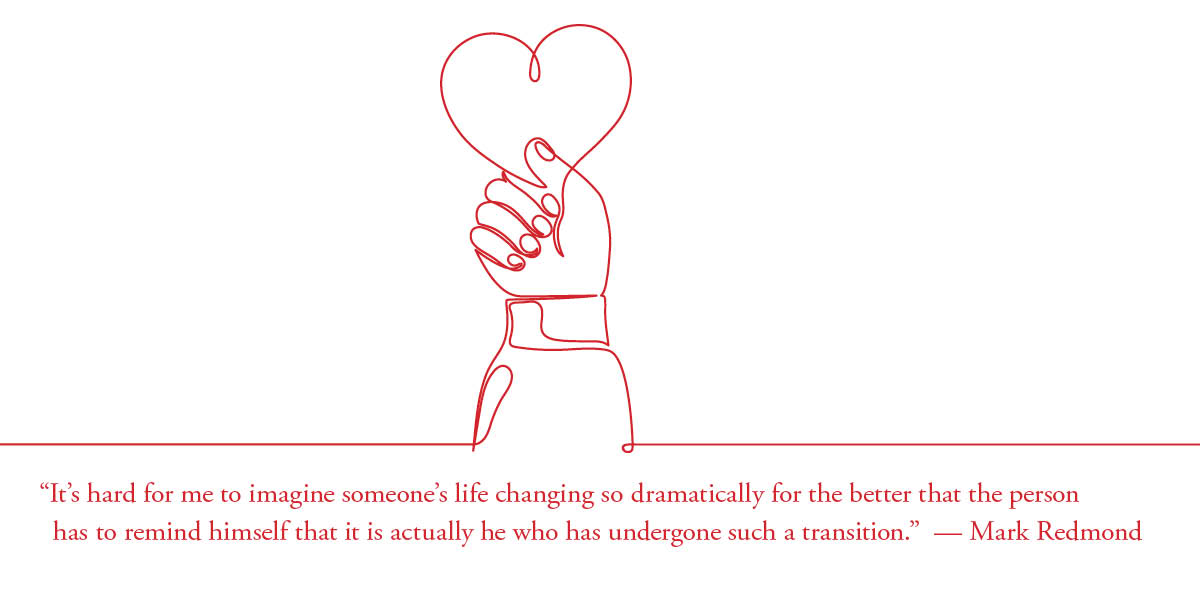
‘I’m not used to people doing nice things for me’
I have been working with homeless and at-risk youth for 42 years. I’m an executive director, a role that entails much time and energy attending to budgeting, fundraising, and strategic planning.
But I commit myself to cook dinner for youth in our drop-in center once a month as well as breakfast for the 16 who reside in our shelter.
It was during one evening meal that I met Ben, a 19-year-old living in one of our residences. We began talking one night, probably about sports or something mundane, and the next time I was making dinner we picked it up. He mentioned “my church” several times. I am Catholic, but the nonprofit at which I work, Spectrum Youth & Family Services, is nonsectarian, so I make it a point not to bring up religion. But by the third time he mentioned, “my church,” I had to ask, “Which church? Which denomination?” He told me he was attending the nearby University of Vermont Catholic Center, was participating in the Rite of Christian Initiation of Adults and would receive the sacraments at the upcoming Easter Vigil.
“Would it be OK for me to come to that?” I asked, and he immediately replied yes.
I attended the vigil; Ben’s case manager from Spectrum attended as well.
Ben chose as his confirmation name “Augustine” because, he said, “I feel like I can identify with him and how he changed his life.”
Eventually Ben moved out of Spectrum and into his own apartment, and we kept in touch, getting together for lunch once or twice a year. I knew he had an affinity for repairing cars, so during one of our lunches I encouraged him to consider enrolling in the auto tech program at Vermont Technical College.
He called me a few weeks later and agreed to go and see the college. I picked him up, we made the one-hour trip there, toured the campus and met the person in charge of the auto program.
When I brought Ben home later, he said, “Thank you for doing this. I’m not used to people doing nice things for me.”
My immediate reaction was that I am very used to people doing nice things for me. But that had not been true for Ben. And I doubt it is true for the majority of young people coming to Spectrum for help.
Ben did apply to college, and I was there for his graduation, along with another Spectrum staff member and the priest Ben knew from the Catholic Center.
My advice to him was, “You earned your degree, now you can get your above-minimum-wage job.” He replied, “I will do that, but I also want to go on and earn my bachelor’s degree in business.” He did.
Ben moved from Vermont to upstate New York. We text and occasionally call, and he never fails to send me a Christmas card. In his last one, he wrote, “This year has been full of surprises, and things are going well. Having two college degrees under my belt is starting to pay off. I cannot begin to thank you enough Mark for your intervention all those years ago as it seems like a lifetime ago, like it happened to someone else almost.”
It’s a card I will treasure and keep forever. His phrase, “like it happened to someone else almost,” is one that really struck me and still does. It’s hard for me to imagine someone’s life changing so dramatically for the better that the person has to remind himself that it is actually he who has undergone such a transition.
—Mark Redmond is the author of “Called: A Memoir.”
—Excerpted from an article originally published in “Where Peter Is.”
—Published in the Winter 2023 issue of Vermont Catholic magazine.

